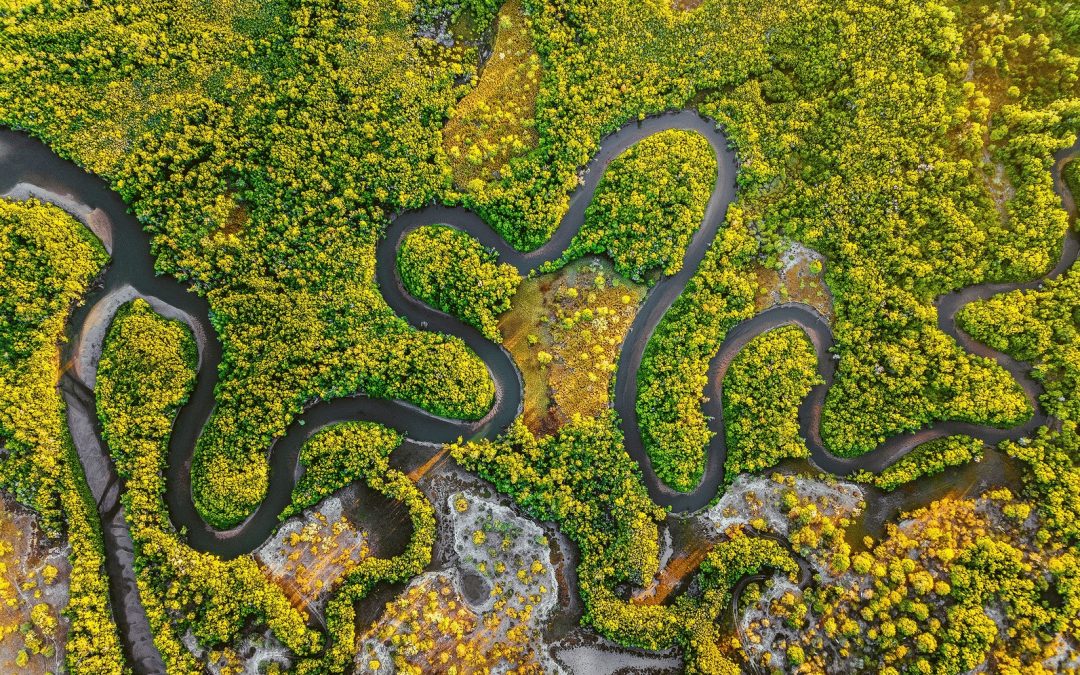Mangroves are a key habitat for our Mapping Ocean Wealth work, and it’s easy to see why. These coastal forests protect shorelines, store and sequester vast amounts of carbon, enhance fisheries, and even provide opportunities for recreation and tourism.
These types of ecosystem service analysis, as well as conservation and marine planning initiatives rely on the best available science and data; but identifying and accessing the most reliable source of data can be a challenge. This is especially true for data on mangrove forests, where advances in satellite data and spatial data processing have led to an abundance of mangrove data at multiple scales, while coordination among mangrove data providers has lagged behind.
A potential solution has been proposed in a recent paper, “Harnessing Big Data to Support the Conservation and Rehabilitation of Mangrove Forests Globally”. Led by Dr. Tom Worthington (Cambridge University), alongside colleagues at The Nature Conservancy and the Global Mangrove Alliance, this paper makes the case for an integrated data platform, currently in development, which will provide centralized access to a wide variety of mangrove datasets, including baseline datasets (e.g., extent, condition, structure), secondary datasets (e.g., derived products such as restoration potential), and analytical dataset (e.g., ecosystem service valuations).
The paper also provides an overview of existing and upcoming datasets, the challenges of using this data for on-the-ground management, as well as guidance as to how global datasets can support existing policy mechanisms needed to fulfill global commitments such as Sustainable Development Goals and Aichi Targets.
The paper provides a path forward for integrating and aligning the vast amount of of mangrove data in a way that is useful to a wide range of stakeholders and conservation practitioners. In the first phases of development, the platform will feature data and interactive statistics on global patterns of change on a multi-year scale, as well as change alerts and data on blue carbon. As the platform is further developed, options for more sophisticated data queries will be available, as will national and local-scale.
Improving access to mangrove data will promote advancement in conservation and restoration of these important habitats.
Photo credit: Christopher Brunner /TNC Photo Contest 2019

